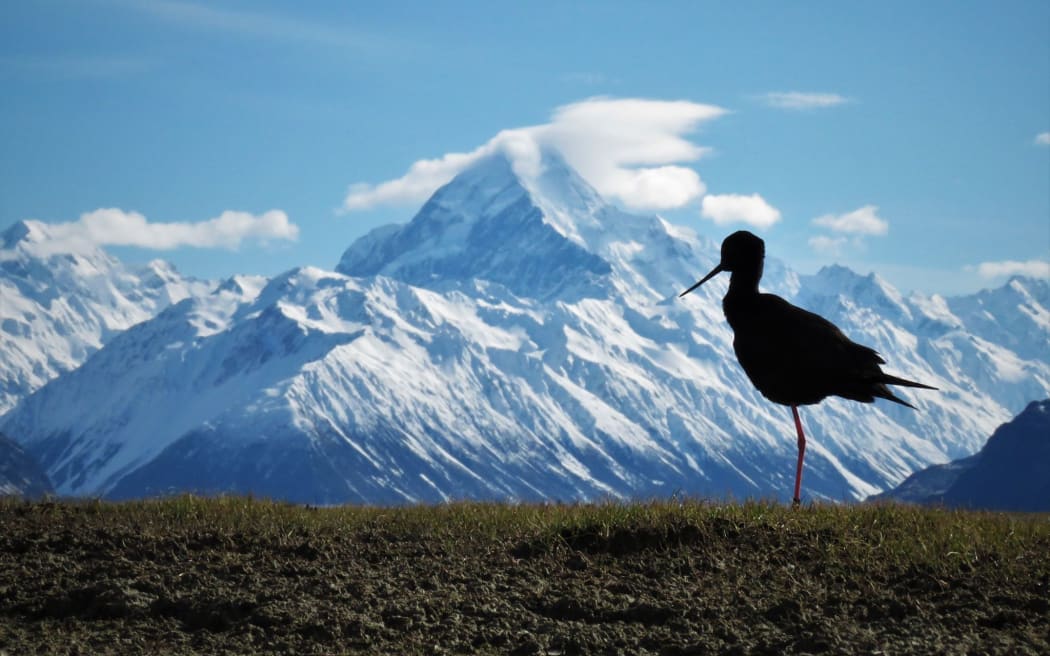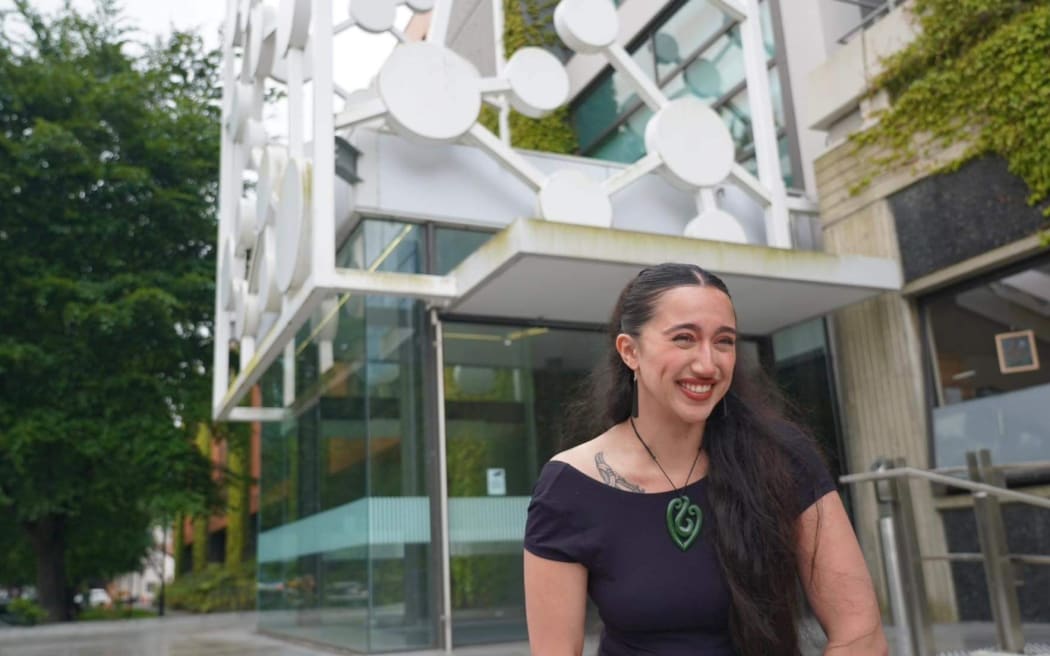
Kaki. Photo: Liz Brown
Follow Our Changing World on Apple Podcasts, Spotify, Stitcher, iHeartRADIO, Google Podcasts, RadioPublic or wherever you listen to your podcasts.
Each year, science communication students at the University of Otago’s Department of Science Communication are tasked with producing a podcast on a controversial science topic. In this episode, we hear two of those stories – on the issue of hybrids in conservation, and on mātauranga Māori – from Janice Huang and Jodie Evans.
How should we manage hybrid species in New Zealand?
Hybridisation is the mixing of genes from different species or subspecies. Throughout history, humans have harnessed this powerful force to create desired crops and domesticated animals.
But in the field of wildlife conservation, hybridisation can threaten some species with extinction.
In New Zealand, one example is the kakī or black stilt, a nationally critical, all-black wader bird that lives in the braided rivers of the Mackenzie basin. Kakī can hybridise with their closest relative, the poaka or pied stilt.

Kakī/black stilt chicks. Photo: Supplied
The kakī population, numbering around 156 wild adult birds, is closely managed to prevent hybridisation.
Listen to the episode to hear contrasting opinions on the plight of the kakī and other organisms threatened by hybridisation.
In defence of mana: Mātauranga Māori and science
Mātauranga Māori translates to Māori knowledge. It's a system that evolved before European contact as Māori encountered new climates, geography, flora and fauna in Aotearoa.
Over the past few years its comparison to western science has ignited significant controversy within the scientific community. The debate came to a peak in 2021 when seven University of Auckland professors signed an open letter to the Listener opposing the integration of mātauranga Māori with secondary school science.

Gemella Reynolds-Hatem. Photo: Jodie Evans
Fostering mātauranga Māori is not about replacing science, says Professor Georgina Stewart, who studies the relationships between science, education language and knowledge.
Increasing mana (respect) for the subjects of research – materials, beings or places – will improve Aotearoa's science with better outcomes for all scientists, says Gemella Reynolds-Hatem, a wāhine Māori student who is passionate about her whakapapa and the value it brings to her study.
Listen to the episode to hear Georgina's expert commentary and the lived experiences of Gemella as she navigates academia.
Learn more:
-
We have a variety of episodes exploring the intersections between science and mātauranga Māori in the Our Changing World catalogue, including: Collaborating to move freshwater species, Wahakura – a woven cradle to save babies' lives, A bridge between science & mātauranga Māori, The science of Matariki, and Our taiao, our tohu – protecting the Waihi estuary.
-
Janice mentions a New Zealand Geographic article on hybridisation in her story: Life will find a way.

